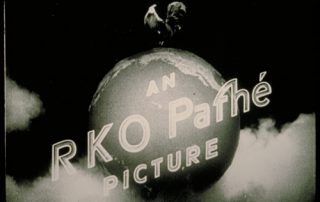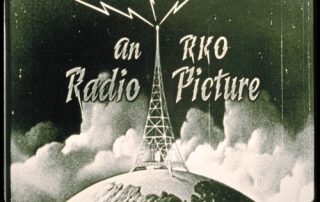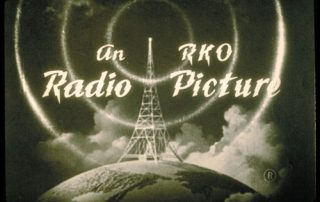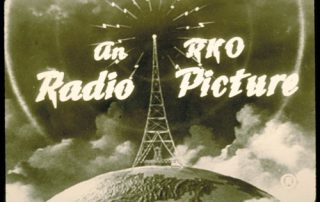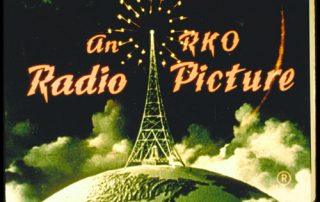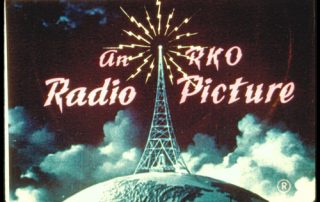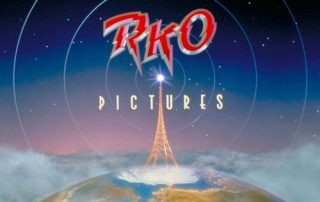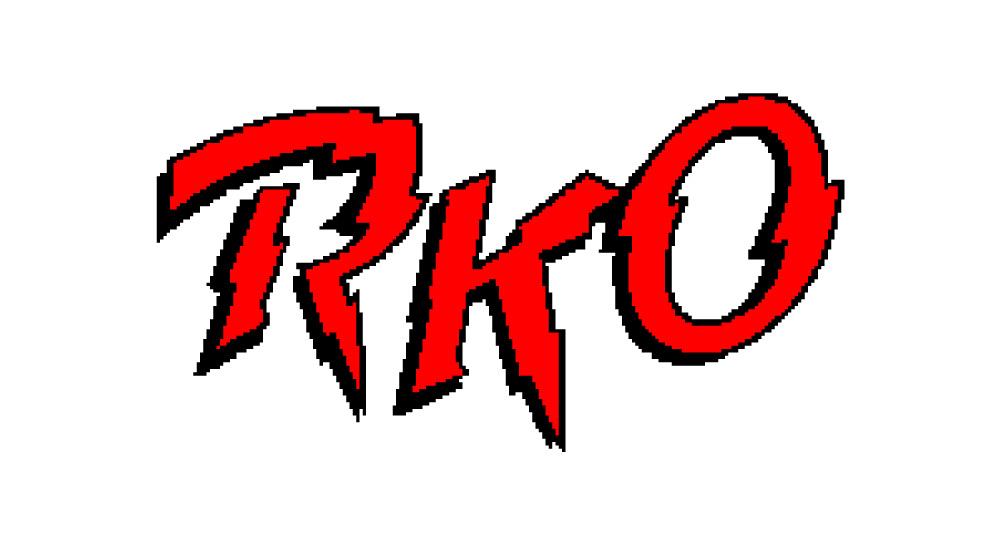
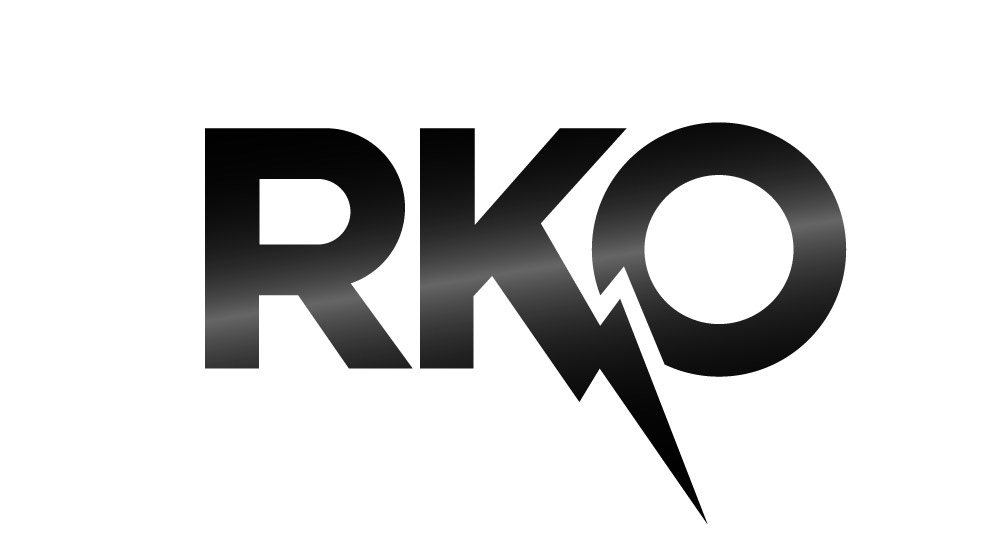
RKO is one of the oldest continuously operating movie studios, and occupies a unique place in the history of filmmaking.
In 1928, two titans of their age – David Sarnoff, President of the Radio Corporation of America (RCA) and Joseph P. Kennedy, father of the future President and owner of the Film Booking Office of America (FBO), a movie distribution company – met at an oyster bar in Manhattan. By the time the meal was over, they’d agreed to combine RCA’s Keith-Albee-Orpheum theater chain with Kennedy’s company (as well as the fledgling Pathe Studios) to form Radio-Keith-Orpheum, or the RKO Corporation. By combining film production, distribution, and hundreds of theaters under one umbrella, they knew they had an innovative business model. Little did they know how innovative the company would be.
Over the following two decades, RKO would go on to produce classics in nearly every genre, from dramas: Frank Capra’s It’s a Wonderful Life (starring Jimmy Stewart), comedies: Howard Hawks’ Bringing Up Baby (starring Cary Grant and Katharine Hepburn), horror films: the original King Kong (starring Fay Wray), thrillers: Hitchcock’s Notorious (starring Cary Grant and Ingrid Bergman), and perhaps the most influential film of all-time, designated by AFI as Number One on their list of the 100 Greatest Movies, Orson Welles’ masterpiece Citizen Kane. Simultaneously, RKO’s distribution arm worked with Walt Disney studios and others, bringing beloved classics like Fantasia, Snow White and the Seven Dwarfs, and Bambi to the big screen.
After a tumultuous period beginning with Howard Hughes’ purchase of the studio in 1948, RKO regained its bearings with its acquisition by Ted Hartley and Dina Merrill in 1989.
